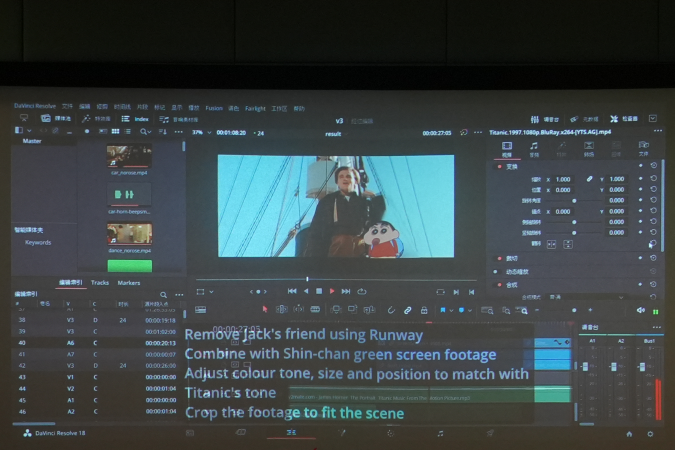HKUST Education and Generative AI Fund Promotes Innovation in Undergraduate Curriculum Design
Six projects led by School of Engineering (SENG) faculty members from five departments were among the 13 projects supported in the first round of the Education and Generative AI (EDGE-AI) Fund. Launched by the Hong Kong University of Science and Technology (HKUST) in spring 2023, the HK$10 million EDGE-AI Fund supports academics dedicated to exploring and shaping the best practices for generative AI (GenAI) in higher education. It encourages faculty and teaching staff to initiate and experiment innovative ideas in their teaching with GenAI tools, and promotes innovation in curriculum design that creates new and engaging learning experiences.
Awarded HK$250,000 in funding, the project led by Prof. Andrew HORNER, Department of Computer Science and Engineering, incorporated AI tools for music and video generation and “America’s Got Talent-style” peer feedback in his undergraduate courses on Creative Sound Design (COMP 1943) and Computer Music (COMP 4441).
For years, the two experiential project-oriented courses taught by Prof. Horner provide students with hands-on experiences in creating music videos and movie/game trailers by creatively remixing music, recutting video, and applying effects. Yet building music videos takes a lot of time and can be overwhelming due to many creative and technical tasks involved. By using GenAI tools for music generation, lyrics generation, video generation, and mashups, students can keep testing how their ideas might work in reality until they get the result that fulfills their requirement. “This process does not only stimulate their innovative thinking, but also improve their motivation and spark their inspiration to build better music videos,” said Prof. Horner.
In conventional music composition classes, students need to learn step-by-step and accumulate certain basic music knowledge and skills before they can start composing music. The use of GenAI can lower the threshold of music creation, enabling students without formal music training to compose music at an advanced level. Music creation can hence be made accessible to all.
Prof. Horner also incorporated “America’s Got Talent-style” peer feedback in his courses to explore the effectiveness of peer evaluation in refining work and learning from each other.
Although GenAI has certain benefits in producing creative work, its output often fails to meet our expectations or requirements. In view of this, Prof. Horner plans to ask his students to fill in a questionnaire to self-assess the effectiveness of using such technology in assisting creative work. By analyzing the results of the questionnaire, he will be able to develop the best practices in teaching and determine which tools are more effective for students in different courses.
The other five funded projects by SENG faculty centered on enhancing data science education using GenAI tools (Prof. GAO Hanyu), virtual teaching assistant (Prof. ZHANG Jize & Prof. Tim TSE), interactive teaching and active learning through ChatGPT (Prof. QIU Xuan), evaluation of learning process using GenAI tools for effective communication (Prof. Robin MA), and a GenAI Q&A platform for active learning (Prof. David LAM & Dr. Stanley LEUNG).

